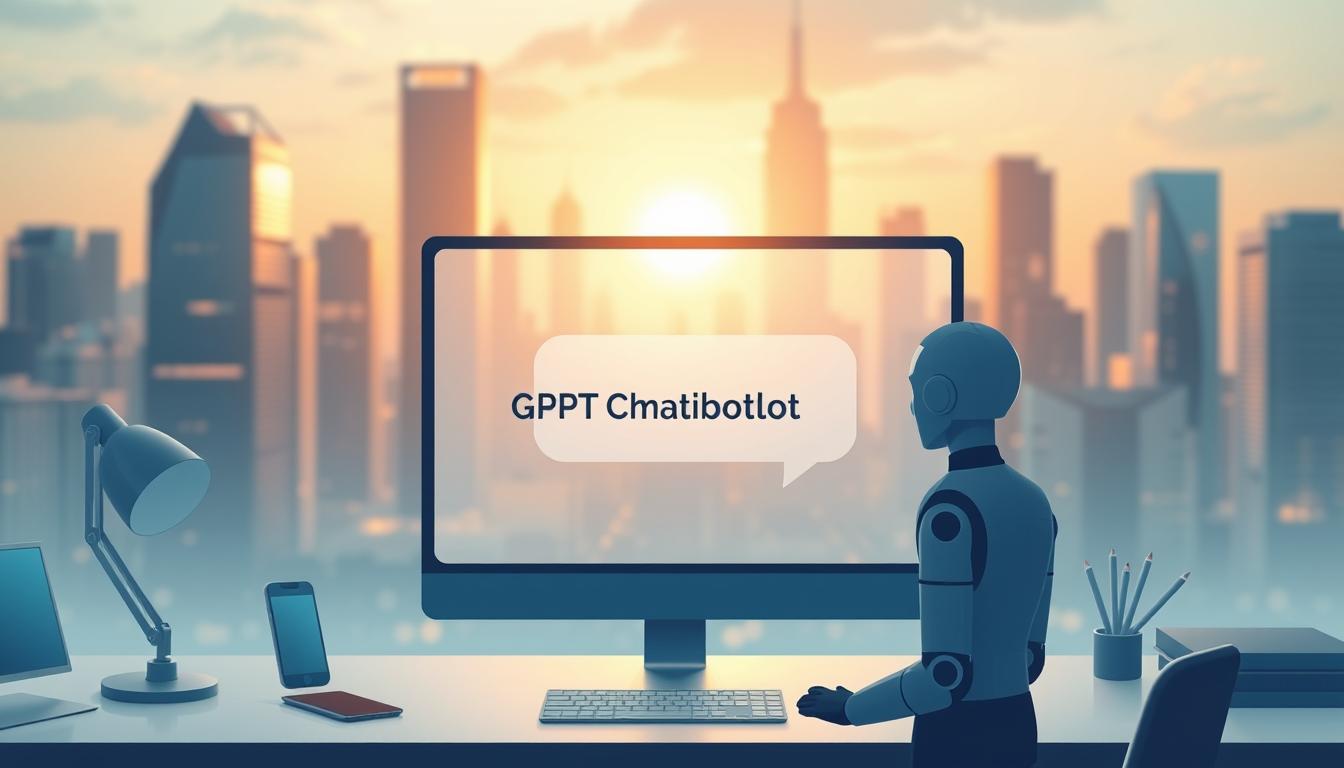Discover insights from the best AI Copilot interview 2025. Learn how AI copilots are transforming productivity, workflows, and the future of work
As we enter 2025, the job search world is changing fast. AI Copilot technology is now a big part of hiring. In fact, 23% of companies use AI for interviews, starting a new chapter in finding jobs.
AI interview assistants are changing how companies look for new team members. These tools make interviews easier and give insights to help candidates get ready.
This guide will show you how to do well in an AI Copilot interview in 2025. We’ll cover what these tools do, their benefits, and how to get ready.
Key Takeaways
- Understanding the role of AI in modern recruitment
- Key features of AI Copilot interview technology
- Benefits of using AI interview assistants
- Effective preparation strategies for AI Copilot interviews
- Insights into the future of recruitment with AI
The Evolution of AI Copilot Technology in2025
In 2025, the AI Copilot is more than just an assistant. It’s a true partner in our work and digital interactions. The tech has grown a lot, changing how we work and use digital tools.
From Assistant to Collaborative Partner
The AI Copilot has moved from being just a helper to a real partner. This big change comes from better machine learning and natural language skills. Now, it can have more complex conversations with us.
Key Features of AI Copilot:
- Enhanced contextual understanding
- Improved predictive capabilities
- Seamless integration with various development environments
Key Advancements in AI Copilot Capabilities
The AI Copilot can now do more, helping in many fields. It’s become a key tool in different industries.
Integration with Development Environments
AI Copilot now works better with development tools. This makes it easier for developers to work together and manage projects. Experts say this has boosted productivity by 30%.
Multi-modal Capabilities
AI Copilot can now handle different types of input. It can understand text, voice, and images. This opens up new uses in customer service and data analysis.
| Capability | 2024 Features | 2025 Features |
|---|---|---|
| Integration | Limited to text-based inputs | Multi-modal inputs (text, voice, visual) |
| Development Environment Support | Basic integration | Seamless integration with major IDEs |
As AI Copilot keeps getting better, it’s playing a bigger role in interviews and teamwork. These changes are making interviews more efficient and revealing.
What Makes the Best AI Copilot Interview 2025 Different
In 2025, the AI Copilot interview is changing a lot. New AI tech is making interviews better and more useful.
New Assessment Methodologies
The old way of interviewing is getting a boost. Now, we look at a candidate’s skills, problem-solving, and how well they fit in. This includes AI-driven simulations and real-world project assessments.
AI-Driven Interview Components
AI is making interviews better. Some key parts are:
- Automated technical evaluations
- Sentiment analysis during interviews
- Personalized interview questions based on candidate profiles
Automated Technical Evaluations
Now, we use AI-powered tools to check a candidate’s coding and problem-solving. It’s a big change.
Sentiment Analysis During Interviews
Sentiment analysis helps us see how well a candidate can handle emotions and talk. It’s a big help in understanding if they’re right for the job.
| Interview Component | Description | Benefits |
|---|---|---|
| Automated Technical Evaluations | AI-powered assessments of technical skills | Reduces bias, increases accuracy |
| Sentiment Analysis | Analysis of candidate’s emotional responses | Improves understanding of candidate’s fit |
With these AI tools, interviews in 2025 will be more detailed and helpful. Candidates should work on both technical and soft skills. This way, they’re ready for AI Copilot jobs.
Essential Technical Skills for AI Copilot Positions
In 2025, the AI copilot technology field needs people with a solid base in key technical areas. AI is changing many industries fast. This means more jobs for those who can work with AI solutions.
Programming Languages and Frameworks
Knowing programming languages like Python, Java, and C++ is key for AI copilot jobs. Also, being familiar with frameworks like TensorFlow, PyTorch, and scikit-learn helps a lot.
Key Programming Languages:
- Python
- Java
- C++
Machine Learning and Natural Language Processing
Machine learning (ML) and natural language processing (NLP) are core to AI copilot tech. Knowing ML algorithms and NLP is essential for making smart copilot systems.
“The future of AI copilot technology lies in its ability to understand and process human language effectively.” – AI Expert
Prompt Engineering Expertise
Prompt engineering is a key skill for AI copilot pros. It’s about making good prompts that get the right answers from AI models.
Crafting Effective Prompts
Making good prompts needs a deep grasp of how AI handles language. It’s about being clear, precise, and relevant to the context.
Understanding Context Windows
Knowing about context windows is key for AI copilots that keep conversations on track and relevant.
| Technical Skill | Description | Importance Level |
|---|---|---|
| Programming Languages | Proficiency in languages like Python, Java, and C++ | High |
| Machine Learning | Understanding ML algorithms and models | High |
| NLP | Knowledge of NLP techniques and applications | High |
| Prompt Engineering | Crafting effective prompts for AI models | Medium |
By focusing on these key technical skills, professionals can get ahead in AI copilot roles. This will also improve their chances in AI interviews.
Soft Skills That Make You Stand Out in AI Copilot Interviews
In today’s world, the right soft skills can really help you shine in AI Copilot interviews. AI is now a big part of hiring, so it’s not just about technical skills. It’s also about how well you communicate, think on your feet, and handle new situations.
Effective Communication and Collaboration
Being able to share complex ideas simply and work well with AI and humans is key. Show how you’ve explained technical stuff to people who don’t get it. Also, talk about your teamwork skills and how you’ve worked with different groups.
- Practice sharing your thoughts clearly and briefly.
- Share times when you had to explain tough ideas to others.
- Talk about your teamwork experience and how you’ve helped teams work together.
Problem-Solving and Critical Thinking
AI Copilot interviews often test your problem-solving and thinking skills. Show that you can solve problems logically and think quickly.
“The ability to think critically and solve problems creatively is at the heart of what makes a great AI Copilot.”
— Expert in AI Recruitment
Adaptability and Continuous Learning
AI changes fast, so being flexible and always learning is key. Show you’re into keeping up with AI news and eager to learn more.
Keeping Pace with Rapid AI Advancements
To stay on top, get involved with the AI world. Go to conferences, join online forums, and read AI news. This shows you care about AI and are ready to learn.
Key strategies include:
- Always read about AI in publications and research papers.
- Join hackathons or AI competitions to use your skills in real-life situations.
- Be active in online communities to keep up with new AI trends.
By focusing on these soft skills, you’ll show you can communicate well, think critically, and adapt. This will help you stand out in AI Copilot interviews and do well in this field.
Preparing Your AI Copilot Portfolio
AI Copilot roles are getting more complex. A strong portfolio is key to show your skills and achievements. With more jobs available, a well-made portfolio helps you stand out.
Showcasing Relevant Projects
When making your AI Copilot portfolio, showcasing relevant projects is essential. Pick projects that show your AI Copilot skills. Include projects that:
- Show you’re good with programming languages like Python or Java
- Prove you know machine learning and natural language processing
- Display your ability to use AI frameworks and tools
Demonstrating Real-World Applications
To make your portfolio stand out, demonstrate real-world applications of your projects. You can do this by:
- Telling the problem you solved
- Explaining how you tackled it and the tech you used
- Sharing the results and how they helped
Quantifying Your Impact
Quantifying your impact shows your value to employers. Use numbers to show how effective your projects were.
Metrics That Matter to Employers
Focus on these important metrics:
| Metric | Description | Example |
|---|---|---|
| Accuracy Improvement | Percentage increase in model accuracy | 25% improvement in prediction accuracy |
| Processing Time Reduction | Reduction in time taken for tasks | 30% reduction in data processing time |
| User Engagement | Increase in user interaction with AI systems | 40% increase in chatbot user engagement |
By focusing on these areas and presenting clearly, you’ll make a strong AI Copilot portfolio. This will make you a top choice for AI Copilot jobs in 2025.
How AI Is Transforming the Recruitment Process
AI is changing how companies hire, making the process better and faster. It’s turning old ways of hiring into new, smart methods.
AI-Powered Resume Screening
AI helps sort through many resumes quickly. It looks for the right skills, experience, and qualifications. This saves time and cuts down on human bias.
Automated Initial Interviews
AI is also changing initial interviews. Chatbots and virtual assistants can talk to candidates first. They help pick the best candidates and make the process fairer.
Reducing Bias in Hiring
AI helps reduce bias in hiring too. It focuses on job-related factors, not personal ones. But, it’s important to check these systems often to make sure they work right.
Ethical Considerations in AI Recruitment
AI brings many benefits to hiring, but there are ethical issues. It’s key to be open about how AI makes decisions and protect candidate data. Companies need to use AI wisely and ethically.
In short, AI is changing hiring in many ways, from sorting resumes to fighting bias. As AI gets better, companies must keep up and update their hiring methods.
Strategies for the Best AI Copilot Interview2025
AI is changing the job world fast. To do well in an AI Copilot interview in 2025, you need a smart plan. You must be ready and show you really get AI.
Pre-Interview Research Techniques
Before your AI Copilot interview, do your homework on the company and the job. Learn about the company’s AI plans, read the job description closely, and know their products or services. Good research before the interview lets you answer better and shows you’re really interested in the job.
- Check the company’s website and recent news
- Look at the job description to find key skills and qualifications
- Find out about the company’s rivals and industry trends
Practice with AI Interview Simulators
Using AI interview simulators can really boost your skills. These tools mimic real interviews, so you can practice answering questions and get feedback. This practice sharpens your answers and boosts your confidence.
| Simulator Feature | Description | Benefit |
|---|---|---|
| Realistic Interview Scenarios | Simulates actual interview questions and environments | Prepares you for the actual interview |
| Personalized Feedback | Provides detailed feedback on your responses | Helps improve your answering techniques |
| Performance Tracking | Tracks your progress over multiple practice sessions | Identifies areas for improvement |
Demonstrating Your Thought Process
In the interview, it’s not just about right answers. It’s also about showing how you think. This means talking about how you solve problems and how you work with others.
Verbalizing Problem-Solving Approaches
When you face a technical problem, explain your thought process. Talk about how you break down the problem, the steps to solve it, and how you check your solution. This shows your critical thinking skills.
Showcasing Collaborative Thinking
AI Copilot jobs need teamwork. Share times when you worked well with others, shared knowledge, or helped on a team project. Use examples to show you can work together well.
By using these tips, you’ll be ready for your AI Copilot interview in 2025. It’s not just about your tech skills. It’s also about showing you can think deeply and work well with others.
Navigating Technical and Behavioral Questions
AI Copilot technology is growing fast. It’s key to know how to handle both tech and behavioral interview questions. You need to show off your tech skills and soft skills for AI Copilot jobs.
Common Technical Challenges
Technical interview questions for AI Copilot often focus on coding, machine learning, and natural language processing. You should be ready to solve complex problems that test your tech skills.
Code Optimization Scenarios
Optimizing code is a big challenge. You might get a code piece to make it better for performance, scalability, or readability.
AI Prompt Engineering Tests
AI prompt engineering is another area. You’ll need to create prompts that get the right answers from AI models.
Storytelling with the STAR Method
Behavioral questions are also key in AI Copilot interviews. The STAR method helps you structure answers to these questions. It lets you share stories that show off your skills and experiences.
Addressing Ethical AI Considerations
With AI everywhere, ethics matter more than ever. Be ready to talk about your ethical AI approach. Show you understand the big picture of your work.
| Technical Skill | Behavioral Competency | Importance in AI Copilot Roles |
|---|---|---|
| Coding Skills | Problem-Solving | High |
| Machine Learning | Collaboration | High |
| Natural Language Processing | Adaptability | High |

Mastering tech skills and soft skills boosts your chances in AI Copilot interviews.
Industry Trends Affecting AI Copilot Roles in2025
In 2025, the AI Copilot world will see new tech, rules, and market needs. As companies use more AI, the role of AI Copilot is key.
Emerging Technologies and Methodologies
New advanced machine learning algorithms and natural language processing are making AI Copilots better. Prompt engineering is also being used to make AI work better with people.
Regulatory Changes and Compliance
As AI gets smarter, rules are coming to keep it fair. AI Copilot pros need to know these new rules, like data privacy laws, to stay legal.
Market Demands and Specializations
More companies want AI Copilot experts. Skills in AI ethics, explainable AI, and domain-specific AI applications are in high demand.
High-Growth Sectors for AI Copilot Experts
Fields like healthcare, finance, and customer service are growing fast for AI Copilot pros. They use AI to make customers happier, work better, and innovate more.
By keeping up with these trends, AI Copilot experts can thrive in 2025 and beyond.
Conclusion: Positioning Yourself for Success in the AI Copilot Landscape
The need for AI Copilot experts is rising fast. To stand out, you must prepare well for AI interviews. Focus on both technical skills like programming and soft skills like communication and problem-solving.
Showcasing your relevant projects and real-world applications is key. Also, keep up with new trends and changes in the field. This guide will help you ace AI Copilot interviews and thrive in this dynamic field.
FAQ
What is an AI Copilot interview?
An AI Copilot interview uses artificial intelligence to help evaluate candidates for AI jobs. It checks both technical and soft skills.
How is AI used in the recruitment process for AI Copilot positions?
AI helps at every stage of hiring, from resume checks to skills tests. It makes hiring faster, fairer, and more efficient.
What technical skills are required for AI Copilot positions?
You need skills in programming, machine learning, and natural language processing. Keeping up with new tech is key.
How can I prepare for an AI Copilot interview?
Improve your technical skills and practice with AI simulators. Work on your soft skills like communication and problem-solving. Knowing the company and role is also important.
What soft skills are important for AI Copilot roles?
Good communication, problem-solving, and adaptability are essential. Show these skills in your interview to stand out.
How can I showcase my AI Copilot projects effectively?
Highlight real-world uses and your impact. Use metrics that employers value to show your work’s worth.
What are the emerging trends in AI Copilot technology?
Trends include better multi-modal capabilities and ethical AI. Staying updated on these trends is important.
How can AI Copilot technology impact the future of work?
It will boost productivity and collaboration. Learning to work with AI will become more important.
What are the best practices for acing an AI Copilot interview?
Prepare well, practice with simulators, and show your skills. Being ready to talk about ethical AI is also key.






hi!,I like your writing so much! share we communicate more about your article on AOL? I need an expert on this area to solve my problem. May be that’s you! Looking forward to see you.